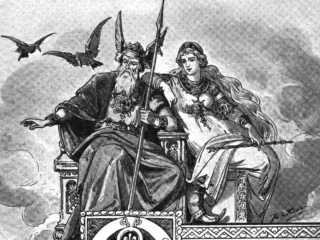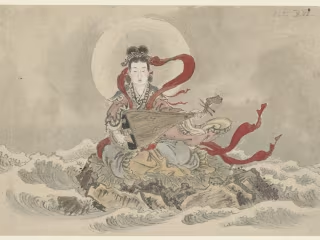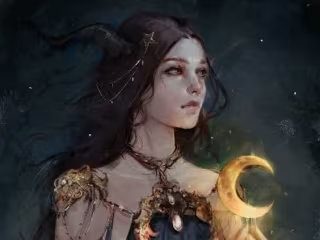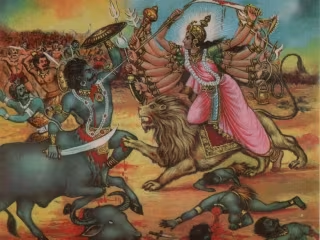Aurora: Goddess of Dawn
0
Ghostwriter
Blog Writer
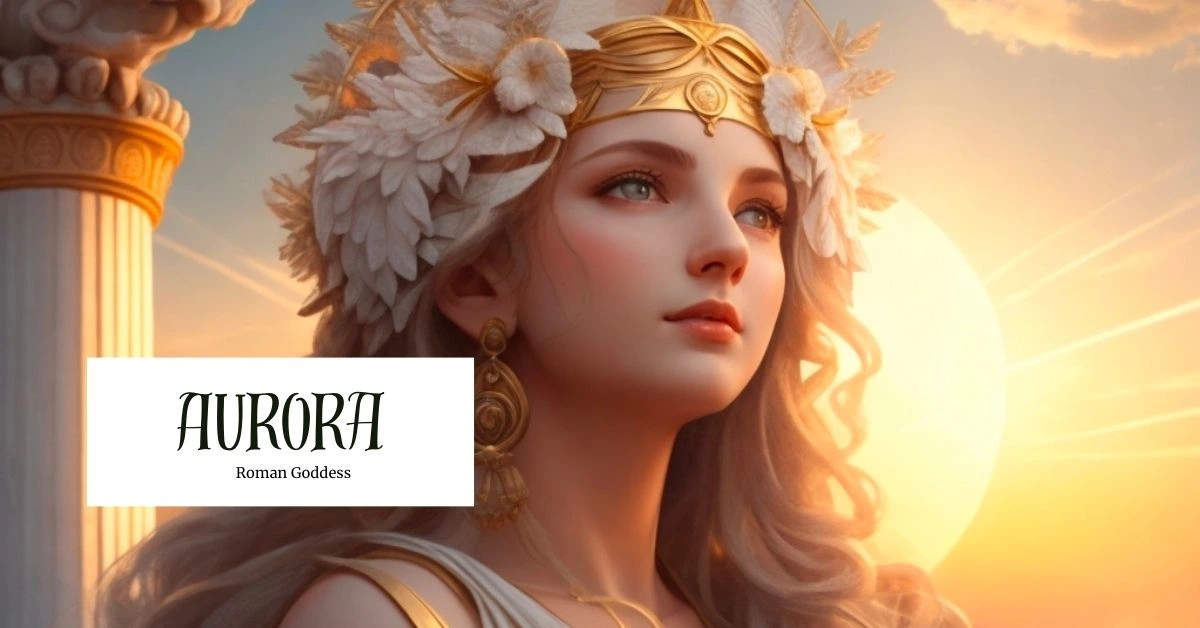
The goddess Aurora has long been revered for her role as the bringer of dawn. In ancient Roman mythology, her radiant presence was said to signal the beginning of a new day and the promise of new opportunities. As the Goddess of Dawn, Aurora’s otherworldly beauty and grace were an enchanting sight to behold, and her luminous light cast a spell over all who witnessed it.
It is said that Aurora’s light has the power to dispel even the darkest shadows, bringing hope and renewal to all who are fortunate enough to experience it. For centuries, people have looked to her as a symbol of new beginnings, a reminder that even in the darkest of times, there is always the promise of a brighter tomorrow (“Aurora, Roman Goddess of Dawn: Mythology & Powers | Who Is Aurora?”).
Overview of Aurora
Aurora, often called Eos in Greek mythology, is the Roman goddess of dawn and is closely associated with the break of day. Her appellation is derived from the Latin term “aurora,” which denotes the rising sun and the illumination it brings to dispel darkness (“Aurora (Mythology)”). Different names across various cultures know the goddess, yet her essence as the bringer of light remains consistent throughout.
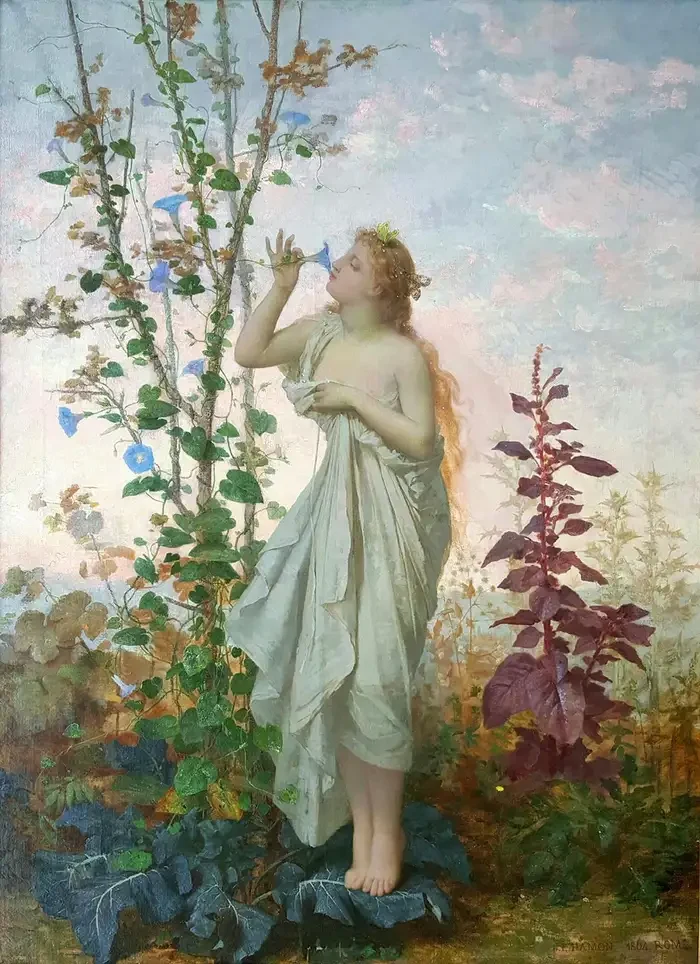
Source: 1stDibs
Titles
Goddess of Renewal
Dawn Bringer
Sky Painter
Abilities
The majestic Aurora commands celestial powers that transcend the comprehension of mortals, as she commands the very cosmos (“Aurora, Roman Goddess of Dawn: Mythology & Powers | Who Is Aurora?”). Aurora’s mystical presence operates as a luminous bridge that connects the realms of night and day, offering a celestial crossover that blurs the boundaries between night and the radiant promise of day (“The Goddess Aurora: A Mythical Legend of Light and Dawn”). In her luminous choreography, Aurora performs a cosmic ballet at the threshold of two worlds, reminding humanity of the continuous interplay between the darkness that recedes and the light that emerges, a reminder that reverberates through the very fabric of existence. Aurora was also considered a messenger of the gods, and she was often depicted riding a chariot across the sky to announce the arrival of the sun (“Aurora (Mythology)”).
Characteristics
The embodiment of ethereal and captivating beauty, Aurora’s delicate features reflect the wondrous spectacle she unveils with the break of dawn. Adorned in flowing robes that shimmer like the initial rays of light piercing through the veil of night, Aurora’s presence instills a unique blend of comfort and awe (“Aurora, Roman Goddess of Dawn: Mythology & Powers | Who Is Aurora?”). Her eyes, often compared to the promise of a new beginning, encapsulate the very essence of hope inherent in the birth of each day (“Aurora – Roman Goddess of Dawn”). Her tranquil demeanor further accentuates this aura of hope and renewal, casting an atmosphere of serenity and bestowing a sense of inner calm upon those fortunate enough to witness her radiance.
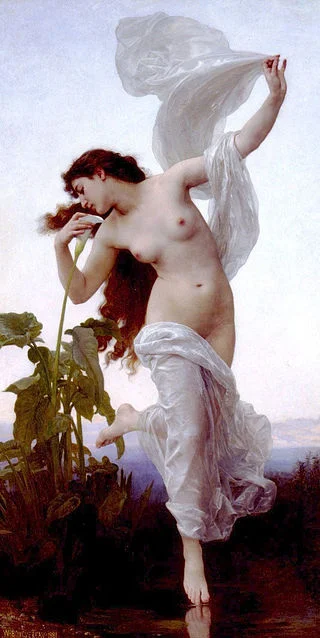
Source: Wikipedia
Traits
Aurora’s unwavering commitment to her purpose and duty is enchanting and beautiful. Her dedication to orchestrating the cosmic order is reflected in her gentle touch, delicately stirring the world from its slumber (“Aurora (Mythology)”). As a nurturing caretaker, she ushers in each new day with tenderness, bestowing mortal hearts with the gift of a pristine beginning with each sunrise (“Aurora – Roman Goddess of Dawn”). As a beacon of hope, she symbolizes the unceasing potential for brighter perspectives accompanying the ascending sun. Her celestial essence is forever intertwined with humanity’s aspirations, and her profound influence forever touches those who revere her.
Symbols
The symbols of Aurora transcend mere visuals, conveying her divine role as the goddess of dawn and the bearer of light. Her resplendent robes, adorned with shades of pink and gold, reflect the celestial canvas of the morning sky (“The Goddess Aurora: A Mythical Legend of Light and Dawn”). The chariot, an emblem of her swift journey across the heavens, is a well-known symbol of the goddess, drawn by celestial steeds of mythical grandeur (“Aurora, Roman Goddess of Dawn: Mythology & Powers | Who Is Aurora?”). As Aurora’s chariot makes its radiant passage, it heralds the triumphant ascent of the sun, illuminating the world with her ethereal touch. Overall, the symbolism of Aurora is a testament to her intimate connection with the morning sky and the light that she brings to the world.
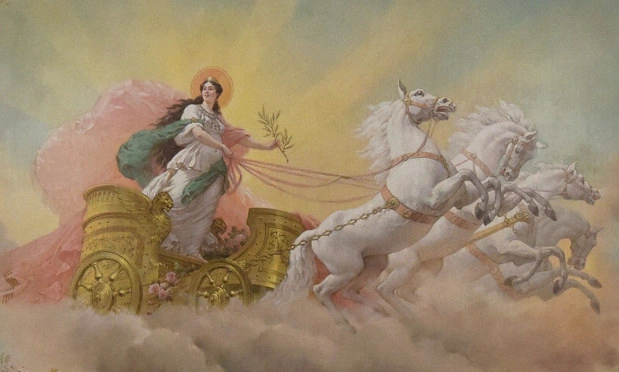
Source: The Mainichi
Festivals and Rituals
The pervasive influence of Aurora is celebrated through a variety of festivals and rituals, each of which honors the goddess in its unique way. Among these, the “Aurora Festival” is a particularly joyful occasion marked by music, dance, and offerings to honor the luminary deity (“The Goddess Aurora: A Mythical Legend of Light and Dawn”). At dawn, devout participants gather to witness the breathtaking spectacle of the sunrise, attributing its splendor to Aurora’s benevolent grace (“Aurora, Roman Goddess of Dawn: Mythology & Powers | Who Is Aurora?”). Customary practices further enhance these more prominent festivals carried out daily, serving as a constant reminder of the goddess’s unwavering presence and providing supplicants with blessings for a prosperous voyage ahead. Collectively, these customs emphasize the profound bond between mortals and the divine, effectively highlighting Aurora’s significant role in those who seek her guidance and benevolence.
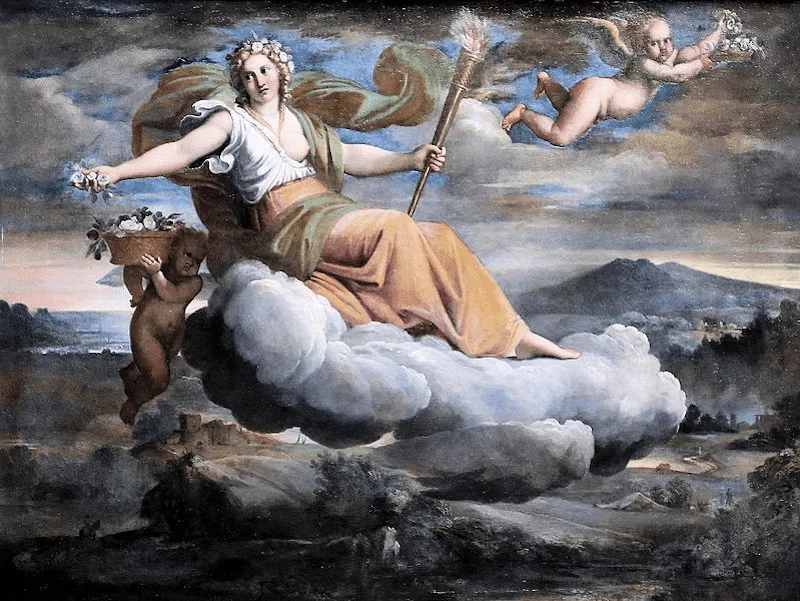
Source: The Pulter Project
Legends associated with Aurora
The multifaceted realm of Roman mythology is home to the celestial entity Aurora – the goddess of dawn. Bestowed with the pivotal role of the herald of daylight, she etches an indelible imprint upon the ancient Roman culture. Her presence has wielded an immense influence, giving rise to compelling legends that continue reverberating across a spectrum of religious and cultural paradigms.
Origin story
The mythical origins of Aurora are steeped in celestial intrigue and divine lineage. Roman mythology tells of Aurora as the daughter of Hyperion, the Titan of light, and Theia, the Titaness associated with sight and clear vision. Her birth from this divine union imbues Aurora with a radiance intricately intertwined with her parents’ luminous qualities. As such, she embodies the ethereal essence of light and the clarity of vision, establishing herself as an illuminated bridge between these concepts (“Aurora (Mythology)”).
Aurora’s lineage is critical to understanding her pivotal role as the herald of dawn and the bringer of daylight. Her radiance is the enchanting force that illuminates the sky, signaling the end of the night and the beginning of a new day. It symbolizes hope and renewal, inspiring awe and wonder in all who witness it. Without Aurora, the transition from darkness to light would be abrupt and jarring, lacking the beauty and grace that only she can provide. Indeed, her role as the radiant herald of dawn is nothing short of essential, and her mythical lineage only underscores the magnitude of her importance.
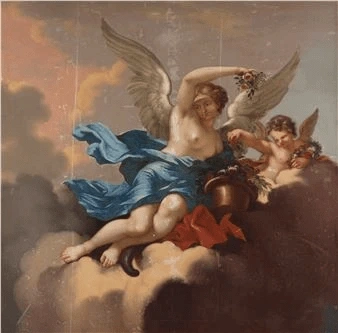
Source: Bukowskis
Aurora’s Love and the Shadows of Sorrow: The Tragic Tale of Cephalus and Procris
The tragic tale of Cephalus and Aurora is recounted in Book Seven of Ovid’s Metamorphoses. Cephalus, a renowned hero from Athens, was deeply in love with and wedded Procris. Soon after their union, Cephalus went on a deer hunting expedition, where he caught the attention of the Goddess of Dawn, Aurora. Known for her wandering eye and penchant for mortal men, Aurora descended from her mountain abode and abducted Cephalus. Although he remained faithful to Procris, Aurora allowed him to return home, but not before secretly vowing to seek retribution (Tate). She sowed the seeds of jealousy in their marriage, and the consequences were dire. Procris’s suspicion and misunderstanding led to a series of unfortunate incidents in a heart-wrenching turn of events.
During a hunting trip, Procris trailed Cephalus and, in a case of mistaken identity, was fatally wounded by him with a spear. The arrow, intended for what was perceived as a wild animal, resulted in the tragic loss of Procris, concluding a tale of unintended consequences and the collision of emotions within the realm of myth (“The Goddess Aurora: A Mythical Legend of Light and Dawn”). The poignant legend serves as a reminder of the intricate threads that weave human emotions and cosmic forces within the fabric of mythology, encapsulating the ethereal allure of Aurora’s love and the shadows of sorrow that can shroud even the most luminous tales of romance.
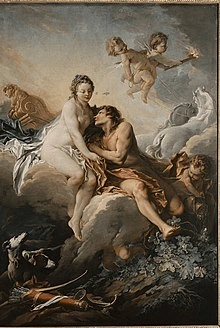
Source: Wikipedia
The Tragic Tale of Tithonus: A Mortal Granted Immortality, but Deprived of Youth
As per ancient Greek tradition, subsequently adopted by Roman poets, a myth tells us that Aurora, the goddess of dawn in Roman mythology, fell in love with Tithonus, the Prince of Troy. It is worth noting that Tithonus, being a mortal, remained subject to the inevitable passage of time and the certainty of aging and eventual death. In her divine yearning for eternal togetherness with her beloved, Aurora approached Jupiter, the chief of the Roman gods, imploring him to grant Tithonus the gift of immortality. In his benevolence, Jupiter acceded to Aurora’s earnest request (“The Goddess Aurora: A Mythical Legend of Light and Dawn”).
Despite the importance of Aurora’s request for Tithonus’s immortality, her plea needed to be revised in that she should have asked for the concurrent gift of eternal youth. As a result, Tithonus was granted immortality but was forever deprived of the perpetual vitality of youth. Over time, he suffered from the ravages of age without any respite, gradually deteriorating until he was eternally old, burdened with the weight of countless years. Moved by her deep compassion for Tithonus, Aurora devised a transformation that would offer him some solace in the face of the unrelenting passage of time. She transformed him into a cicada, granting him an existence that provided a semblance of relief from the never-ending aging process that had befallen him (“The Goddess Aurora: A Mythical Legend of Light and Dawn”).
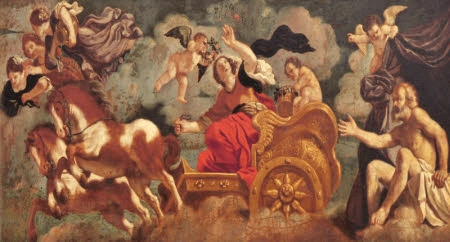
Source: National Trust Collections
Influences of other religions/cultures on Aurora
Aurora’s transcendent presence extends beyond the confines of Roman and Greek mythologies, leaving an indelible mark on diverse religious and cultural narratives. Within Roman culture, Aurora’s luminous character finds resonance with dawn goddesses in other mythologies, fostering intercultural connections. These connections become evident in the likening of Aurora to Ushas in Hindu mythology and Eos in Greek mythology, both of whom share the role of heralding the dawn. Such parallels underscore humanity’s shared fascination with the break of day – a symbol of the victory of light over darkness and the timeless rejuvenation cycle (“Aurora, Roman Goddess of Dawn: Mythology & Powers | Who Is Aurora?”).
Aurora’s cross-cultural significance illustrates the enduring allure of the dawn as a metaphor for optimism and renewal, transcending geographical and temporal boundaries to captivate the collective human imagination.
Modern appearances
The legacy of Aurora endures in contemporary times, manifested through diverse artistic expressions, literature, and cultural representations. Aurora’s essence remains alive through works of art that capture the delicate hues of dawn and literary pieces that draw upon her symbolism of hope and new beginnings. In present times, she is a muse for poets, painters, and creators who seek to encapsulate the magic of daybreak in their creations. Aurora’s timeless allure finds expression in modern art, where she graces canvases and sculptures with her ethereal presence. The subtle hues that herald her arrival are expertly captured by artists who endeavor to replicate the enchantment of dawn on their chosen mediums. Furthermore, writers continue to derive inspiration from Aurora’s symbolism, infusing their prose and poetry with the optimism and renewal associated with her character. Though no longer worshiped in the same tradition as in ancient times, Aurora’s influence persists in contemporary culture.
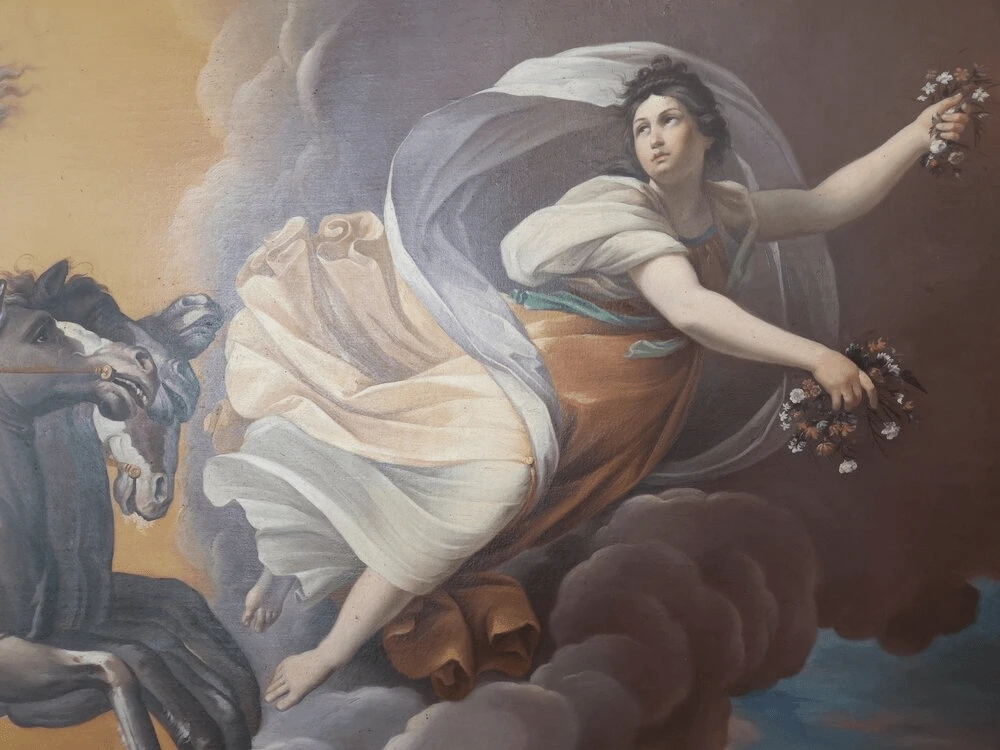
Source: Reepham Antiques
Final thoughts
Aurora, the revered Roman goddess of dawn, embodies the intricate interplay between myth, nature, and human aspirations. Legends that trace her origin, love stories, and cosmic significance have woven an enchanting tapestry of mythos. Aurora’s influence extends beyond her mythological boundaries, resonating with other cultures and religions, holding the hope and promise she embodies dear. As the radiant harbinger of dawn, Aurora’s presence endures, leaving an indelible mark on the human imagination through art, literature, and cultural celebrations. Her legacy is a reminder of the perpetual cycle of light, life, and renewal that the goddess embodies—a timeless gift that shines brightly across the ages.
References
“Aurora (Mythology).” Wikipedia, 15 May 2020, en.wikipedia.org/wiki/Aurora_(mythology).
“Aurora – Roman Goddess of Dawn.” Symbol Sage, 20 Nov. 2020, symbolsage.com/roman-goddess-of-dawn/.
“Aurora, Roman Goddess of Dawn: Mythology & Powers | Who Is Aurora?” Study.com, 2023, study.com/academy/lesson/aurora-roman-goddess-dawn-mythology-powers.html.
Tate. “‘Cephalus and Aurora (1)‘, Leon Kossoff, 1998.” Tate, www.tate.org.uk/art/artworks/kossoff-cephalus-and-aurora-1-p11690#:~:text=The%20story%20of%20Cephalus%20and. Accessed 1 Sept. 2023.
“The Goddess Aurora: A Mythical Legend of Light and Dawn.” Aurora Academy, www.auroracourses.eu/the-goddess-aurora-a-mythical-legend-of-light-and-dawn. Accessed 1 Sept. 2023.
Did we miss something? Do you know another aspect of this legend? Don't hesitate to reach out!
Like this project
0
A client hired me to write several informative pieces on Roman Goddesses, and this blog post centers around the Goddess of Dawn, Aurora.
Likes
0
Views
424
Tags
Ghostwriter
Blog Writer


